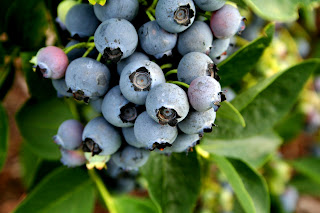
You may have heard the term antioxidant lately as it seems to be cropping up in many products including everything from food to skin care to shampoo. But what does that term mean, exactly?
To understand what an antioxidant does, we need to understand one of the theories of how aging occurs and how cancer occurs. In the process of living, metabolizing food for energy and respiring, our cells create free radicals and reactive oxygen species, which are molecules with a single unpaired electron in an outer shell. Environmental stimuli such as tobacco smoke or radiation can also cause free radicals. Simply put, this means these molecules are “itchin’ for a fight” or looking to steal an electron from another molecule, which creates oxidative damage. Over time, if our cells sustain enough oxidative damage there is injury to the DNA, the cell becomes less adept at repairing damage and we end up with a cancerous cell or an aged cell whose days are numbered.
An antioxidant is a reducing agent, which interacts with free radicals or reactive oxygen species and prevents damage to our cells. We measure the antioxidant activity of a substance using the ORAC or Oxygen Radical Absorbance Capacity score. A high ORAC score means a high antioxidant activity. Antioxidants can be vitamins, vitamin cofactors, minerals, hormones, carotenoids, flavonoids, phenolic acids, and other organic compounds. Antioxidants are commonly found in fruits and vegetables (your mother was right!) Other great sources of antioxidants are nuts, spices and herbs, including cocoa (mmm, chocolate!)
So, the theory is that anything antioxidant should play a role in healing and repairing, preventing cancer and preventing aging. Is this true? This is a hot area of study right now, so the answers are just beginning to come in. There is good evidence that specific dietary antioxidants play a role in preventing macular degeneration (a major cause of visual impairment in the U.S.), preventing Alzheimer’s disease, reducing the risk of some cancers, reducing inflammation and preventing at least some changes of aging. Topical antioxidants have been shown to help prevent skin cancer. Evidence is beginning to emerge that at least one dietary antioxidant (resveratrol) appears to extend our lifespan.
In many of the studies that have been done, intake of whole foods, spices, herbs, etc. are shown to be associated with a decreased risk of cancer, macular degeneration, etc. but just taking a vitamin as an isolated supplement is not always associated with a positive benefit. This may indicate that there is some way in which the complete whole food functions in a different way with its complex composition as compared to an isolated vitamin, or it may indicate that something in the processing of a food may destroy some or all of the antioxidant properties inherently present. We do know that heat and heat processing often decrease the antioxidant activity present in a food. This is why a cold processed high antioxidant food such as Xocai chocolate (raw cocoa, acai berries, and blueberries) or Mona Vie juice (acai berries and other fruits) has greater value as an antioxidant source.
So should you be concerned about antioxidants? It is beneficial to have plenty of fresh fruits and vegetables in your diet, organically grown, if possible, because there is a higher antioxidant activity and greater nutritional value in organic foods as compared to conventionally grown foods. Many people feel they get benefit from the cold processed high antioxidant foods in the form of greater energy and less chronic pain. Finally, there are some definite health benefits and no known drawbacks to taking many of the antioxidant supplements, so why not?
Lisa Hogan, MD
Owner and Medical Director of
Youthology, Aesthetic & Anti-Aging Medicine
(where you can sample some gourmet antioxidant chocolate)
919-847-1495
www.youthology.md

No comments:
Post a Comment